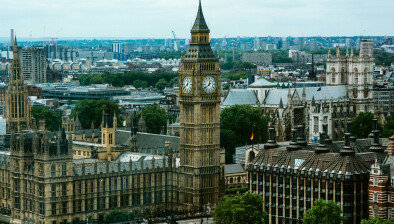Shooting of four IRA men referred to Northern Ireland prosecutors

A coroner’s finding that the 1992 shooting by British soldiers of four Provisional IRA men at Clonoe Chapel was not justified has been referred to prosecutors.
Mr Justice Michael Humphreys ruled earlier this month that the soldiers, who belonged to a specialist military unit (SMU), held no honest belief that lethal force was necessary.
Between 514 and 570 rounds were fired by the soldiers, with one of the four men shot in the back while running away and another shot in the head while lying incapacitated on the ground.
The court also found that “agencies of the state perpetuated falsehoods about the events which unfolded at Clonoe”.
Reports produced by the SMU and the Royal Ulster Constabulary (RUC) claimed that the IRA men had also fired shots, which was “demonstrably untrue and must have been known to be untrue”.
At a further hearing yesterday, Mr Justice Humphreys confirmed that he had sent a report to the Director of Public Prosecutions (DPP) in line with a statutory requirement under the Justice (Northern Ireland) Act 2002.
Section 35(3) of the 2002 Act states: “Where the circumstances of any death which has been, or is being, investigated by a coroner appear to the coroner to disclose that an offence may have been committed against the law of Northern Ireland or the law of any other country or territory, the coroner must as soon as practicable send to the [DPP] a written report of the circumstances.”
The opposition Conservative Party has called on the UK’s Labour government to protect former British soldiers from legal actions linked to the Troubles.
In an answer to a written parliamentary question, Northern Ireland secretary Hilary Benn said on Wednesday: “We owe a great debt to our Armed Forces who served in Northern Ireland.
“The previous government’s Northern Ireland Troubles (Legacy and Reconciliation) Act 2023 has been found to be unlawful and was widely opposed in Northern Ireland, including by some families who lost relatives whilst serving the state.
“That legislation does not prevent legal action being brought by prosecutors for Troubles-related offences, although it is clear that, with the passage of time, prosecutions are increasingly unlikely.
“As this government puts in place changes to ensure that legacy cases are dealt with sensitively, efficiently and lawfully, we will ensure that any veteran engaging with this process receives welfare and, where appropriate, legal support.”








